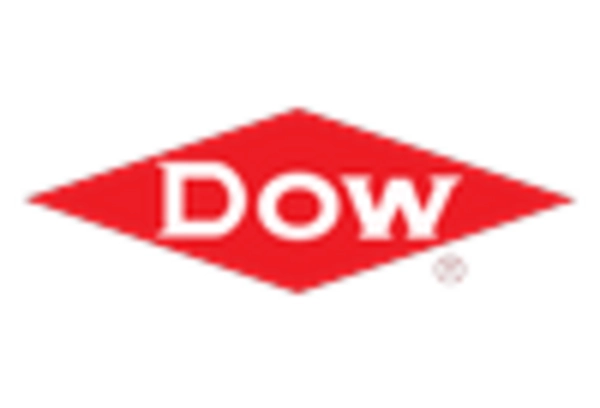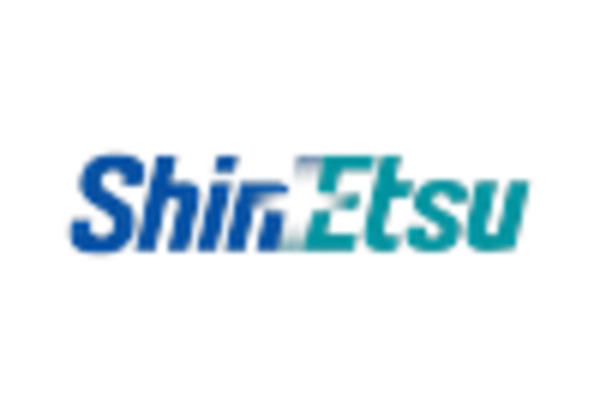Expansion of the Electronics Sector
The fluorosilicone rubber market is poised for growth due to the expansion of the electronics sector. With the increasing demand for electronic devices, there is a corresponding need for materials that can withstand high temperatures and provide excellent insulation properties. Fluorosilicone rubber is increasingly utilized in the manufacturing of electronic components, such as connectors and seals, which require reliable performance under varying conditions. The U.S. electronics market is projected to reach $1 trillion by 2026, suggesting a robust opportunity for fluorosilicone rubber manufacturers to capitalize on this growth.
Rising Demand for Oil and Gas Applications
The fluorosilicone rubber market is significantly influenced by the rising demand for materials used in the oil and gas industry. Fluorosilicone rubber is known for its superior resistance to oil, fuels, and other harsh chemicals, making it an ideal choice for seals, gaskets, and hoses in this sector. As the U.S. continues to invest in energy production and exploration, the need for reliable materials that can withstand extreme conditions is paramount. This trend is likely to drive the fluorosilicone rubber market, with projections indicating a potential growth rate of 4% over the next few years.
Increasing Adoption in Defense Applications
The fluorosilicone rubber market is experiencing a notable increase in demand due to its critical applications in the defense sector. This material is favored for its exceptional resistance to extreme temperatures and harsh chemicals, making it ideal for military equipment and aerospace components. The U.S. defense budget has seen allocations exceeding $700 billion, with a portion directed towards advanced materials that enhance the durability and performance of military assets. As defense contracts expand, the fluorosilicone rubber market is likely to benefit from increased procurement of high-performance materials, thereby driving growth in this segment.
Technological Advancements in Material Science
Innovations in material science are propelling the fluorosilicone rubber market forward. Recent developments in polymer chemistry have led to enhanced formulations that improve the performance characteristics of fluorosilicone rubber, such as its thermal stability and chemical resistance. These advancements are particularly relevant in industries like aerospace and automotive, where stringent performance standards are required. The market is projected to grow at a CAGR of approximately 5% over the next five years, driven by these technological improvements that enable manufacturers to produce more efficient and durable products.
Regulatory Support for High-Performance Materials
The fluorosilicone rubber market is benefiting from increasing regulatory support aimed at promoting the use of high-performance materials in various industries. Regulatory bodies in the U.S. are encouraging the adoption of materials that meet stringent environmental and safety standards. This support is particularly evident in sectors such as aerospace and automotive, where compliance with regulations is critical. As companies seek to align with these regulations, the demand for fluorosilicone rubber is expected to rise, potentially leading to a market growth of around 6% in the coming years.
















